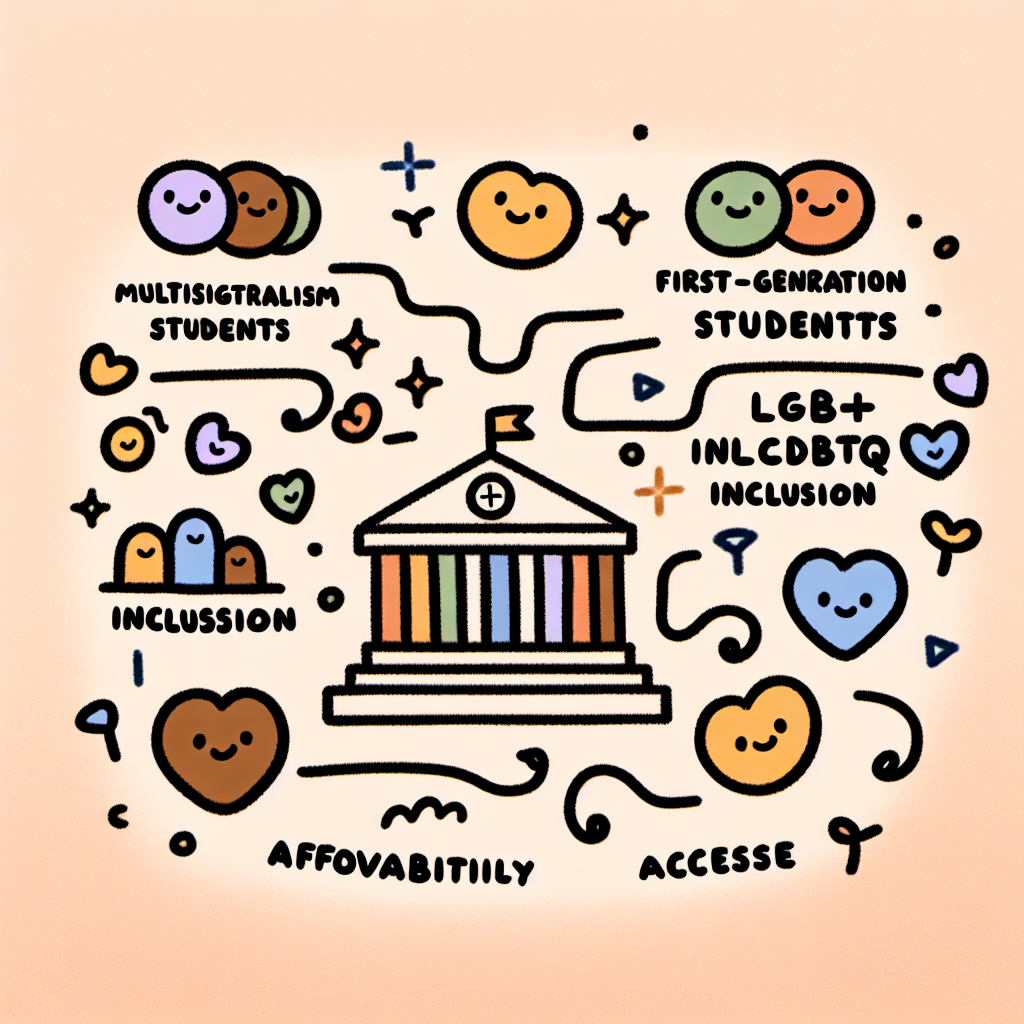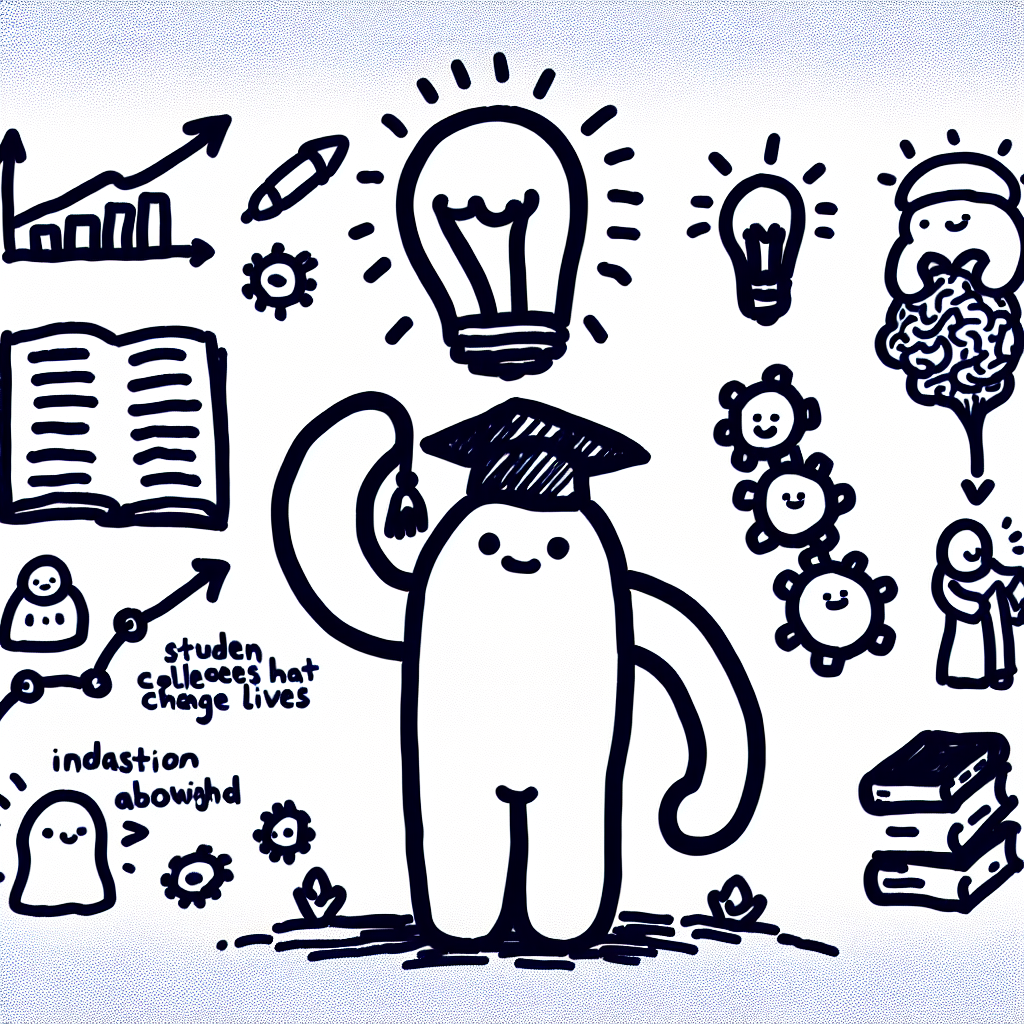Introduction
The "Colleges That Change Lives" (CTCL) movement began with education advocate and former New York Times education editor Loren Pope. In his influential book Colleges That Change Lives, Pope highlighted a group of lesser-known liberal arts colleges that he believed offered exceptional, student-focused education. These schools, he argued, provided transformative experiences that helped students grow intellectually and personally—often more so than more prestigious or widely recognized institutions.
The mission of CTCL is to promote a student-centered approach to higher education. The organization supports colleges that prioritize teaching, mentoring, and personal development over rankings or exclusivity. The goal is to help students find schools that foster curiosity, engagement, and a lifelong love of learning.
In today’s higher education landscape, where many students and families are overwhelmed by competitive admissions and rankings, CTCL offers an alternative perspective. It emphasizes fit, individualized learning, and long-term outcomes over brand names. As concerns about student debt, mental health, and educational value continue to grow, the CTCL philosophy provides a meaningful framework for evaluating what truly matters in a college experience.

The CTCL Consortium
The Colleges That Change Lives (CTCL) Consortium is composed of 44 colleges and universities as of 2025. These institutions span the entire United States, from the Northeast to the West Coast, offering a geographically diverse array of options for prospective students. Despite their varied locations, CTCL member schools share a common commitment to liberal arts education and a strong focus on undergraduate teaching.
CTCL schools are predominantly small to mid-sized, private nonprofit institutions. They are known for fostering close-knit communities where mentorship and intellectual exploration are highly valued. These colleges place a strong emphasis on student engagement and individualized learning experiences. While they may not feature prominently in national rankings, CTCL institutions are recognized for their transformative impact on students’ lives Source.

Academic Excellence and Support
Low Student-Faculty Ratios
Colleges that change lives (CTCL) prioritize close student-faculty interaction by maintaining low student-faculty ratios, typically around 10:1. This is significantly lower than the national average of 16:1, as reported by the National Center for Education Statistics. Smaller class sizes allow for more personalized instruction, greater access to faculty, and meaningful mentorship relationships. Students benefit from increased opportunities for collaborative research and individualized academic support.
Innovative Curricula
CTCL institutions are known for their innovative curricula that emphasize interdisciplinary learning and seminar-style classes. These colleges cultivate critical thinking, strong communication skills, and analytical reasoning. Students often engage in undergraduate research and experiential learning opportunities, which deepen their understanding and prepare them for diverse career paths.
Holistic Admissions Philosophy
Many colleges that change lives adopt a holistic admissions process, often embracing test-optional or test-blind policies. Rather than focusing solely on standardized test scores, these schools assess applicants based on potential, character, and overall fit with the institution. This approach reflects a commitment to access, equity, and the belief that academic promise extends beyond numerical metrics.

Student Outcomes and Success
Colleges that Change Lives (CTCL) are distinguished by their strong track record in student outcomes, demonstrating the effectiveness of their educational models.
High Graduation Rates
CTCL schools report a 68.9% six-year graduation rate for baccalaureate colleges, significantly higher than the national average of 60% (Source). This achievement reflects the institutions’ focus on personalized academic advising, robust support systems, and a sense of community that encourages student persistence and success.
Post-Graduate Achievements
More than 50% of graduates from colleges that change lives pursue graduate or professional degrees within five years of completing their undergraduate studies (Source). Alumni from these institutions go on to thrive in a wide range of fields, including medicine, law, education, the arts, business, and public service.
Career Readiness and Employability
Career readiness is a core component of the CTCL experience. These colleges emphasize experiential learning opportunities such as internships, service learning, and study abroad programs. Combined with strong alumni networks and dedicated career services, graduates are well-prepared for the workforce. They are recognized for their adaptability, leadership skills, and commitment to civic engagement.

Diversity, Equity, and Inclusion
Colleges That Change Lives (CTCL) institutions prioritize building diverse, equitable communities where all students can thrive. These colleges often have proactive programs dedicated to multicultural affairs, support for first-generation students, and LGBTQ+ inclusion. This commitment is evident in campus life, where inclusive values shape policies, curricula, and student support services.
Enrollment trends at CTCL schools reflect their broader mission of educational access and opportunity. According to data from the National Center for Education Statistics, private nonprofit institutions—including CTCL colleges—have experienced rising minority enrollment in recent years. This increase demonstrates the success of ongoing efforts to create welcoming environments for students from a range of backgrounds (Source).
Affordability plays a crucial role in supporting diversity and inclusion. Many CTCL colleges meet a high percentage of demonstrated financial need through strong need-based and merit-based aid programs. These institutions are committed to reducing student debt, ensuring that cost is not a barrier to access for students from all socioeconomic backgrounds.

Campus Life and Student Engagement
Vibrant Student Communities
Colleges that change lives often feature small campus sizes, fostering close-knit communities where students build strong relationships with peers, faculty, and staff. These colleges emphasize meaningful interpersonal connections and collaborative learning environments. A wide variety of student organizations, clubs, and leadership programs provide numerous opportunities for involvement, allowing students to pursue their interests and develop essential skills outside the classroom.
Civic and Global Engagement
Many colleges that change lives emphasize civic responsibility and global awareness. Service learning is a key component of the curriculum, encouraging students to engage with local communities and apply their academic knowledge in real-world contexts. Additionally, these schools often offer robust global learning programs, including study abroad options that promote cross-cultural understanding and international perspectives.
Mental Health and Wellness
Student well-being is a top priority at colleges that change lives. Comprehensive mental health services, including counseling and wellness resources, are widely available. These institutions are known for creating supportive environments that attend to the emotional and psychological needs of their students, helping them thrive both academically and personally.

CTCL vs. Traditional Rankings
Rethinking Prestige
Colleges That Change Lives (CTCL) institutions are frequently absent from traditional rankings like those published by U.S. News & World Report. These rankings often emphasize metrics such as acceptance rates, test scores, and institutional wealth. In contrast, CTCL schools prioritize student development, engagement, and transformative educational experiences over selectivity.
Despite their omission from mainstream lists, CTCL colleges consistently demonstrate high success rates in areas that matter deeply to students and families—such as graduation rates, personal growth, and long-term achievement. Their value lies not in prestige, but in their proven ability to foster meaningful student outcomes.
Measuring What Matters
CTCL schools advocate for an outcomes-focused approach to evaluating higher education. Instead of highlighting inputs like endowment sizes or faculty salaries, they emphasize metrics such as graduation rates, alumni satisfaction, and post-graduate success. This shift allows students and families to assess colleges based on real-world results rather than reputation alone.
Qualitative aspects—like strong mentoring relationships, active learning environments, and community involvement—are central to the CTCL model. These factors provide a richer, more holistic picture of what students can expect from their college experience, setting CTCL schools apart from traditionally ranked institutions.

Choosing a CTCL School: Is It Right for You?
Who Benefits Most
Colleges That Change Lives (CTCL) schools are ideal for students who value personal growth, close faculty relationships, and a liberal arts education. These institutions are particularly well-suited for learners who thrive in smaller academic environments where individualized attention and mentorship are prioritized. Students who feel overwhelmed by the idea of attending a large university may find a better fit at a CTCL college, where class sizes are small and community involvement is emphasized.
CTCL schools often attract students who want to explore a broad range of subjects, develop critical thinking skills, and engage deeply with their academic and social communities. If you're looking for a place where you can be more than just a number, a CTCL institution may provide the supportive and engaging environment you need to succeed.
The Application Process
When considering colleges that change lives, it's important to take a proactive approach to your college search. Start by researching each CTCL school’s academic programs, campus culture, and support services. Visiting campuses can provide valuable firsthand insight into the learning community and help determine if a school feels like the right fit.
Additional strategies include reading student reviews to gain perspective on the day-to-day experiences of current or former students. Attending CTCL college fairs is another helpful step; these events offer opportunities to speak directly with admissions representatives and learn more about what each school offers. Connecting with alumni can also provide a deeper understanding of how a CTCL education can impact personal and professional growth.
By taking time to thoughtfully explore these institutions, students can determine whether a CTCL college aligns with their academic goals and personal values.

Conclusion
Colleges That Change Lives (CTCL) offer a transformative, student-centered education that prioritizes the individual growth and potential of each student. These institutions emphasize outcomes that truly matter: intellectual development, preparation for meaningful careers, and the cultivation of inclusive, supportive communities. Rather than focusing on prestige or rankings, CTCL colleges present a valuable alternative for students seeking a more personal and impactful college experience. They stand as a reminder that the best college fit is not necessarily the most famous, but the one that nurtures the whole person and fosters lifelong success.

References
- National Center for Education Statistics: Graduation and Retention Rates
- National Center for Education Statistics: College Student Demographics
- Higher Education Data Sharing Consortium: Graduate School Enrollment Trends







.png)






